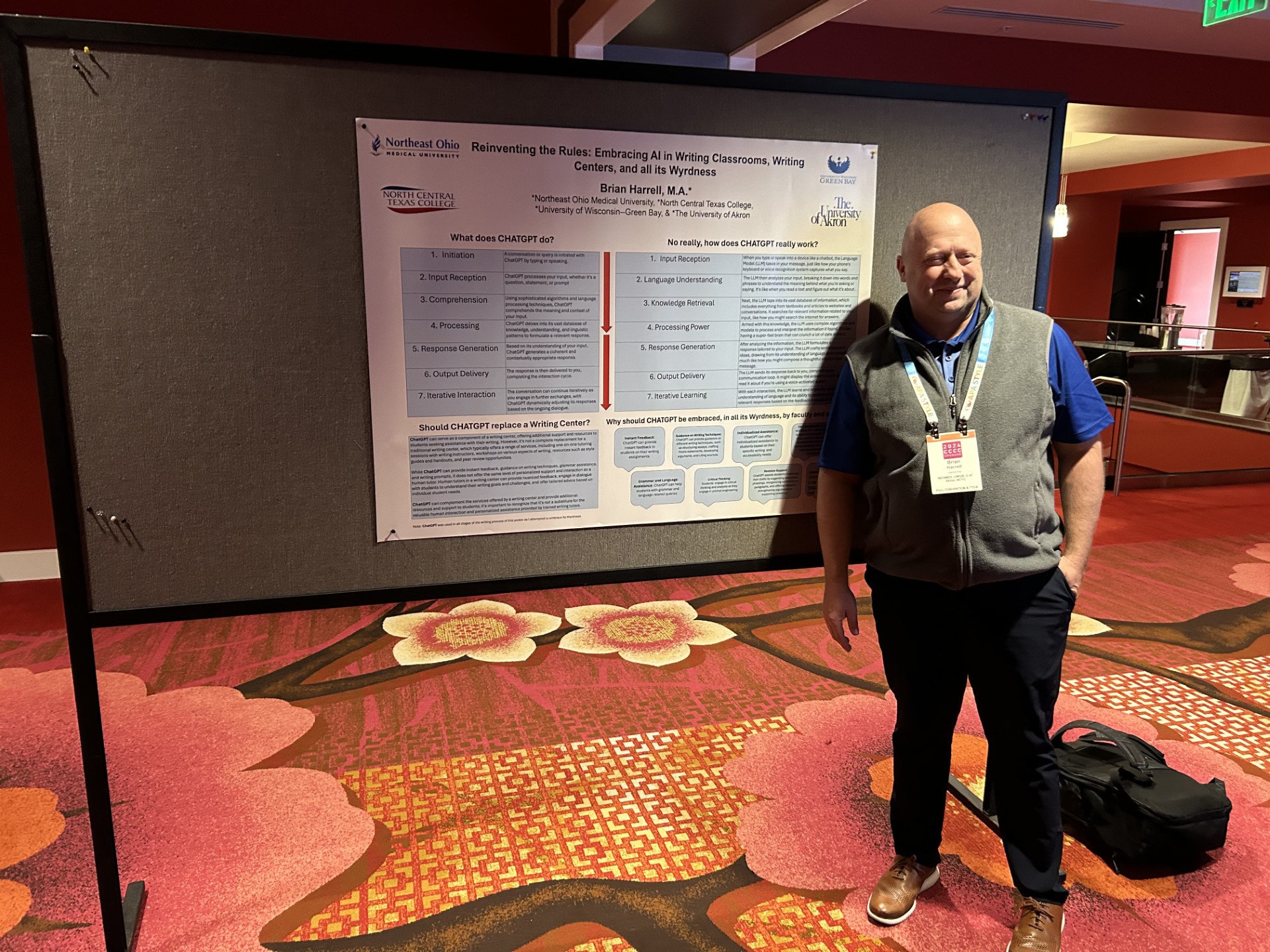
Writing Center Specialist Brian Harrell attended the Conference on College Composition and Communication (4Cs) and the Two-Year College English Associations (TYCA) annual conferences April 3-6, 2024, in Spokane, Washington.
Harrell gave a poster presentation on Wednesday and an oral presentation on Saturday and provided 10 hours of service as a member of the registration committee on Wednesday, Thursday and Friday. He also attended the annual Medical Rhetoric Standing Group meeting and provided a history of the organization that focuses on the rhetoric of health and medicine.
Wednesday, at the TYCA conference themed, “The Weird and the Wonderful: Unexpected Growth in Unfamiliar Space,” Harrell gave a poster presentation titled, “Reinventing the Rules: Embracing AI in Writing Classrooms, Writing Centers, and the Wyrdness of the Teaching in the Two-Year College.” The presentation showed faculty and staff exactly how CHATGPT “thinks” and argued that AI will never be able to replace writing centers and the work done in the writing center space. In addition, the poster suggested a few ways that AI can ethically be used in the writing and research classroom, all which Harrell has used in his classrooms.
This poster can be found in the Writing Center.
On Thursday and Friday, in addition to the service work for the conference, Harrell served on the information table for the Global Society of Online Literacy Educators (GSOLE). Harrell and fellow Writing Center Specialist Brook Wyers are currently earning online literacy certificates from GSOLE for professional development in the Writing Center. Harrell attended concurrent sessions during the day that focused on writing center work and AI in education.
Saturday, Harrell presented at two tables during the Teacher-to-Teacher forum. Harrell discussed using discussion boards to teach learning objectives instead of the traditional essay or exam. The discussion board can encourage students to create knowledge in a Burkean Parlor-like space, while avoiding unethical uses of AI.
In the Medical Rhetoric Standing Group meeting, Harrell quickly realized that he was the oldest member (in service time and age) attending the meeting. It was at that moment he realized the mentee had become the mentor. He did what Lisa Melonçon did for him many years ago, discussing the history of the field with anxious and excited graduate students and early career instructors.
-- Submitted by Brian Harrell, bharrell@neomed.edu